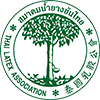(31 October 2025), at Meeting Room 115 of the Ministry of Agriculture and Cooperatives (MOAC), the Rubber Authority of Thailand (RAOT) joined forces with the Department of Agriculture (DOA) to officially launch the �Kick-off for rubber transit goods and controlled zone for rubber transport� initiative. The ceremony was presided over by Thamanat Prompow (Capt.), Deputy Prime Minister and Minister of Agriculture & Cooperatives, who underscored the commitment to tighten supervision and prevent illegal rubber flows via border areas, with the aim of safeguarding Thai rubber market stability. . Capt. Thamanat stated that the persistent problem of illegal rubber imports via border routes has dealt a severe blow to domestic market mechanisms and price stability. Rubber is a key economic crop for Thailand, and a primary source of income for rubber smallholders, as well as a vital driver of the national economy. In recognition of this crisis, the Ministry has declared a policy of �waging war on illegal agricultural products,� under which rubber is a top-priority commodity. A systematic and integrated collaboration between the DOA, RAOT and the Nakaraja Task Force is now underway to thwart illicit rubber imports and false-labelled rubber. Measures will include stock audits of domestic rubber, rigorous control of imported rubber, and enforcement across the value chain. These stringent actions are central to protecting the interests of rubber farmers, preventing hoarding and speculation, and ensuring fair and stable rubber prices in Thailand. . Capt. Thamanat added that the Ministry has partnered with the Customs Department to implement strict controls on cross-border logistics. The new regime mandates detailed scrutinization of shipment documents, containerized transport of rubber with GPS tracking throughout the route, and coordinated quality & X-ray checks by relevant authorities at both origin and destination checkpoints. The pilot roll-out will target two key provinces: Ranong Province and Tak Province. In parallel, the Ministry will invoke powers under the Rubber Control Act B.E. 2542 to declare �controlled zones� for rubber transport to trace the source of harvested rubber and block illegal entries. . Dr. Perk Lertwangwong (Governor of the Rubber Authority of Thailand) remarked that RAOT is able to provide certification services verifying the type or class of rubber designated for onward transit, for operators seeking to move rubber across the Kingdom. Transit routes between Thailand, Myanmar and Malaysia will utilize the border customs checkpoints at the Mae Sot Customs House in Tak Province and the Ranong Customs House in Ranong Province en route to the Sadao Customs House in Songkhla Province. For this purpose, on 6 October 2025 RAOT issued a notice specifying service-fees, application steps, processing times and certification issuance procedures. RAOT also produced a clear operational manual to ensure that rubber transit inspection and certification procedures are standardized, transparent and properly executed. The Kick-off event thereby signals a robust institutional readiness to monitor rubber transit, and clarifies coordination protocols among all involved agencies, ensuring smooth and efficient operations in the field. Such intervention is pivotal to intercepting illegal rubber flows from neighboring countries and thus underpinning the long-term price stability and sustainability of Thailand�s rubber industry. . Mr. Rapibhat Chandarasrivongs (Director-General, Department of Agriculture) stated that illegal rubber imports from border regions, bypassing customs formalities and violating the Rubber Control Act, still persist until now. Under MOAC�s �war on illegal agricultural products� policy, enforcement is being stepped up to curb such smuggling. Using powers granted by Section 6(7) of the Rubber Control Act, the Ministry has declared five districts as controlled zones for rubber transport: Mae Sot (Tak Province), Sangkhla Buri (Kanchanaburi Province), Mueang Prachuap Khiri Khan (Prachuap Khiri Khan Province), Kraburi (Ranong Province) and Wiang Kaen (Chiang Rai Province). This declaration has been in effect since 19 August 2025.
Source : Rubber Authority of Thailand |








